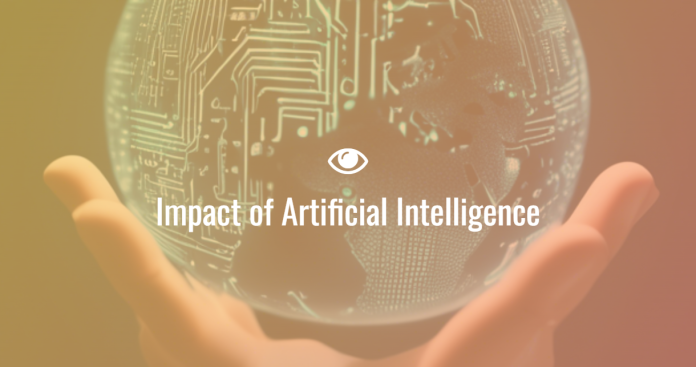The Future of AI: Transforming How We Live, Work, and Innovate
Artificial Intelligence (AI) is no longer a distant concept; it is actively reshaping industries and daily life. From revolutionizing business processes to enhancing healthcare and education, AI is driving significant change. As a result, it is crucial to explore the future of AI, its transformative impact, and what it means for individuals, businesses, and society.
How AI is Shaping the World Today
AI technology is already a central driver of innovation. For instance, chatbots like ChatGPT are improving customer service, while recommendation algorithms on platforms such as Netflix enhance user experience. Furthermore, several industries are benefiting from AI today:
- Healthcare: AI tools like IBM Watson Health assist in diagnosing diseases, personalizing treatments, and speeding up drug discovery.
- Finance: AI-driven algorithms are improving fraud detection, managing investments, and refining credit scoring. Additionally, robo-advisors like Betterment help individuals make smarter financial decisions.
- Transportation: Autonomous vehicles, including Tesla’s self-driving cars, are set to revolutionize mobility, making transportation safer, more efficient, and more sustainable.
The Future of AI: What’s Ahead?
Looking ahead, AI promises even more groundbreaking advancements that will dramatically impact how we live and work. Below are several key areas where AI is expected to make a profound difference in the future:
1. AI in Education
AI will personalize learning experiences, enabling students to learn at their own pace. Tools like Duolingo are already revolutionizing language learning by offering customized exercises. In the future, AI-powered tutors and adaptive learning systems could make education more accessible to individuals worldwide, regardless of location.
2. Smarter Workplaces
AI is transforming workplaces by automating repetitive tasks and enhancing decision-making. With tools such as Microsoft Copilot, professionals can focus on creative and strategic work, boosting productivity and fostering innovation. Consequently, this will allow for more efficient and impactful work environments.
3. Healthcare Breakthroughs
AI will play a pivotal role in preventive medicine, early disease detection, and personalized care. For example, AI-powered predictive analytics could drastically improve patient outcomes and reduce healthcare costs, making treatment more efficient and accessible. Additionally, AI could lead to more accurate diagnoses, enabling faster and more effective interventions.
4. Sustainable Solutions
AI is also contributing to solving global challenges such as climate change. AI-powered systems, like Google’s DeepMind, are already optimizing energy consumption and reducing waste. As a result, AI is paving the way for more sustainable practices in industries such as energy, agriculture, and manufacturing, creating a cleaner and greener future.
5. Enhanced Creativity
GGenerative AI tools, such as DALL·E, are empowering artists, writers, and content creators to generate new ideas and visuals. The future of creativity, therefore, lies in collaboration between humans and machines. This collaboration will unlock entirely new ways of creating and innovating in art, literature, and media.
Challenges and Ethical Considerations
While the benefits of AI are immense, its rapid evolution raises several important concerns that must be addressed. These challenges include:
- Data Privacy: As AI systems process vast amounts of data, ensuring user privacy becomes even more critical. Frameworks such as GDPR aim to protect data rights and ensure transparency in data usage.
- Bias and Fairness: AI algorithms can perpetuate biases if not carefully designed. Therefore, it is essential to focus on fairness and inclusivity to avoid discriminatory outcomes, ensuring that AI serves all members of society equitably.
- Job Displacement: The rise of automation may lead to job displacement, which could significantly affect the labor market. As a result, workers will need to upskill for roles that demand creativity, emotional intelligence, and complex problem-solving skills.
- AI Governance: Developing global standards and ethical guidelines for AI implementation is essential. Organizations like UNESCO are working on creating responsible AI frameworks to ensure the technology’s safe and ethical use.
The Way Forward: Harnessing AI’s Potential
To fully unlock the potential of AI, collaboration between governments, businesses, and academia is vital. By investing in education and workforce training, societies will be better prepared to adapt to the changes AI brings. Furthermore, businesses that integrate AI responsibly will enhance efficiency, productivity, and customer satisfaction, ensuring long-term success.
Consumers must also educate themselves about the implications of AI and how they can leverage it to improve their lives. For more detailed insights into the applications and impact of AI, check out this comprehensive guide to artificial intelligence.
Conclusion
AI is not just a technological revolution; it is a paradigm shift that will redefine industries, societies, and everyday life. While challenges such as data privacy, job displacement, and ethical considerations exist, the opportunities AI brings are vast and transformative. By focusing on ethics, collaboration, and responsible implementation, we can harness AI to create a better, more equitable future for all.
To explore more insights into how AI is transforming industries, visit our AI resource hub.

